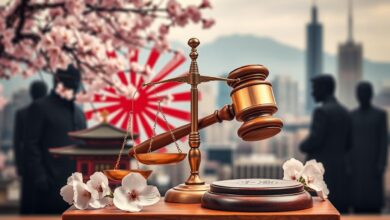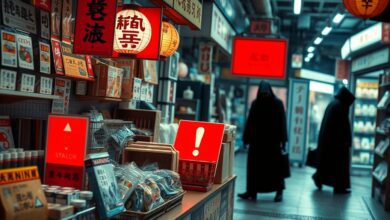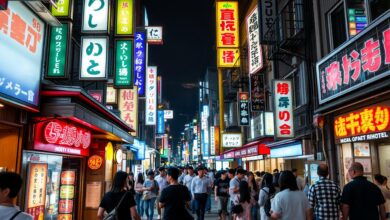Is the Name Hirohito Banned in Japan? Explore the Facts
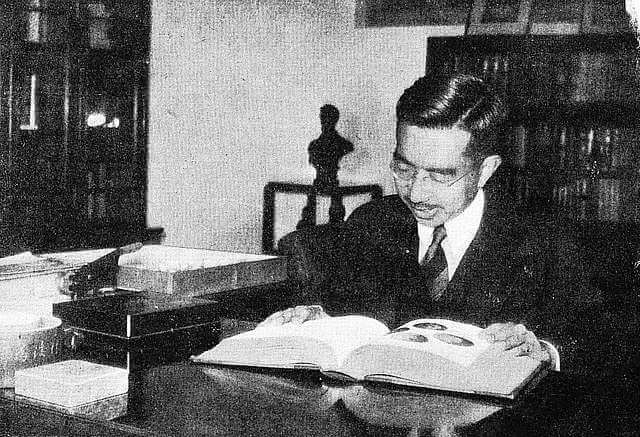
Certain names carry immense weight in history and can evoke many emotions. One such name that has sparked curiosity and debate is Showa Emperor, or Hirohito Emperor, who was the 124th emperor of Japan, the Emperor of Japan during World War II. As we delve into the intriguing question, “Is the Name Hirohito Banned in Japan?”
This topic touches on sensitive aspects of Japanese history and contemporary society. Emperor Hirohito’s rule was filled with important events, including the Siberian Intervention and the February 26 incident. Our goal is to provide a balanced and informative perspective, helping to shed light on this fascinating subject without passing judgment or offending cultural sensibilities.
The Historical Significance of Emperor Hirohito
Emperor Hirohito was a key figure in Japanese history. He ruled from 1926 to 1989, leaving a lasting impact. The debate over his name is complex, tied to Japan’s name restrictions and history.
Emperor Hirohito’s Early Life and Reign
Hirohito became crown prince at age 11 in 1916. In 1912, he was given the Grand Cordon of the Order of the Chrysanthemum. Due to his father’s illness, he became regent in 1921.
Leaders like General Nogi Maresuke and Admiral Togo Heihachiro shaped his education.
The Transformation to Emperor Showa
Hirohito’s reign saw Japan’s entry into World War II. After the war, the Allied occupation changed Japan’s constitution, making the emperor a figurehead and changing modern Japan.
Impact on Modern Japanese Society
Today, Japan’s name restrictions and banned names are still debated. Emperor Hirohito’s legacy shapes Japanese society. Understanding his role helps us see modern Japan’s cultural and historical context.
Understanding Japanese Name Regulations
Japan has rules for names to keep them respectful and fitting. Emperor Hirohito’s history has influenced these rules. Also, censorship in Japan affects the names that are allowed.
Web sources say Japan is strict about names. Some names are banned because they’re too close to the royal family. For instance, Emperor Naruhito’s name has been respected and protected since May 1, 2019.
Here’s a quick look at common Japanese name restrictions:
| Restriction | Description |
|---|---|
| Imperial Names | Names that are too similar to those of the imperial family are restricted |
| Offensive Names | Names that are deemed to be offensive or inappropriate are prohibited |
| Cultural Sensitivity | Names that may be deemed culturally insensitive or disrespectful are restricted. |
Is the Name Hirohito Banned in Japan: Separating Fact from Fiction
Whether the name Hirohito is banned in Japan is a complex issue. There’s no official hirohito name prohibition. Yet, its use is restricted due to Emperor Hirohito’s historical impact on Japan.
There are guidelines regarding Japan’s Hirohito censorship. It’s seen as wrong to use the name disrespectfully, but there’s no total ban. It appears in historical and cultural references.
To understand if the name Hirohito is banned in Japan, we must look at the cultural and historical context. While there are rules, the name isn’t banned outright. It’s about using it respectfully.
Legal Status of the Name
The legal status of Hirohito’s name isn’t clearly defined. Yet, there are regulations. These ensure the name is used respectfully without offending the Japanese people or culture.
Cultural Considerations
Culture is key when using Hirohito’s name. It’s deeply tied to Japanese history and culture, so using it requires sensitivity and respect for the cultural and historical context.
Modern Usage Statistics
Despite rules, Hirohito’s name is still used in various contexts. Recent stats show it appears in cultural and historical references. Japan’s Hirohito censorship rules help keep its use respectful, preventing misuse.
The Cultural Sensitivity Around Imperial Names
Emperor Hirohito is a key figure in Japan, tied to the country’s complex past. His name is often linked to Japan’s history. Due to cultural sensitivity, the use of imperial names, like Emperor Hirohito in Japan, faces restrictions.
In Japan, some names are banned because of their historical meanings. Using these names can offend certain groups. This rule helps maintain social harmony by avoiding offences.
Imperial names, not just Emperor Hirohito in Japan, have cultural restrictions. These names follow unwritten rules and social norms. These rules show respect for the imperial family.
By understanding and following these guidelines, people can avoid offending. This helps create a more harmonious society.
Japanese Naming Conventions and Traditional Practices
Japanese naming traditions are unique and follow strict rules. The history of Japan, including Emperor Hirohito’s reign, has shaped these rules. Knowing about Emperor Hirohito’s history helps us understand Japanese naming customs.
Japan has rules that make sure names are respected. Censorship also helps control names, keeping them from being offensive. These rules are deeply rooted in Japanese culture and history.
Historical Naming Patterns
Old Japanese names mixed Chinese characters with native words. The government-controlled these, and some names were only for the royal family. Emperor Hirohito’s legacy still influences many names today.
Modern Naming Trends
Today, Japanese names are more varied, but strict rules and censorship still apply. Parents often choose names inspired by nature, books, or history, with Emperor Hirohito’s influence still evident.
Legal Requirements for Names
In Japan, name laws are strict. Some names are seen as inappropriate. Censorship and rules ensure names are respectful. Knowing about Emperor Hirohito and Japanese naming history is key to understanding these laws.
| Category | Example | Explanation |
|---|---|---|
| Traditional Names | Sakura | Names inspired by nature |
| Imperial Names | Hirohito | Names inspired by the imperial family |
| Modern Names | Akira | Names inspired by literature or history |
The Emperor System’s Influence on Japanese Names
The emperor system in Japan has a significant impact on names, including imperial ones. Emperor Hirohito ruled for 62 years, profoundly affecting naming traditions. Certain names are avoided in Japan because of their link to the imperial family.
Japanese culture is very sensitive about names. Many people choose names carefully to avoid offence. The emperor system’s influence is clear in how names are picked and used in society. For instance, Hirohito is still a respected name in Japan, even though it’s not common anymore.
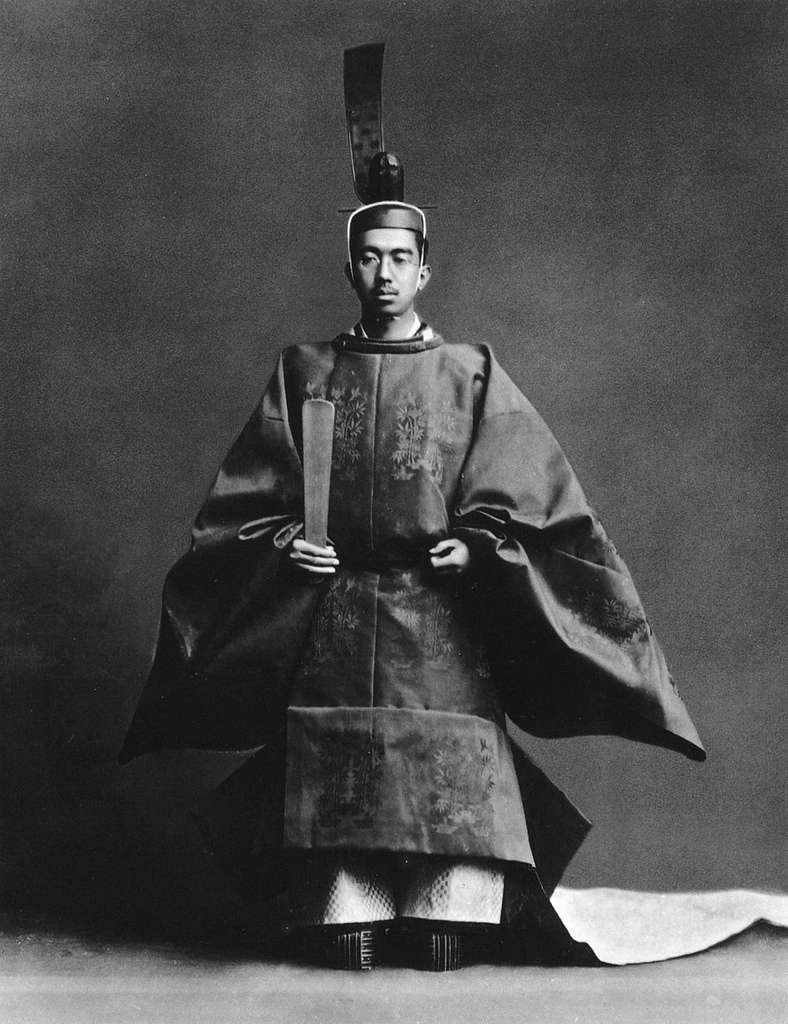
The following table shows the timeline of Emperor Hirohito’s life and reign:
| Year | Event |
|---|---|
| 1901 | Emperor Hirohito was born on April 29 |
| 1916 | Formally proclaimed Crown Prince on November 2 |
| 1926 | He began his reign as Emperor of Japan on December 25 |
| 1989 | Died on January 7 at the age of 87 |
The emperor system’s impact on Japanese names is complex and deep. It shows Japan’s rich history and cultural values. Understanding this helps us appreciate the importance of names in Japanese culture.
Common Misconceptions About Imperial Names in Japan
Many people have wrong ideas about imperial names in Japan, like Hirohito. They often wonder if the name Hirohito was banned in Japan, which has led to a lot of debate. Many see the Hirohito name prohibition as a strict ban, but it’s actually more complex.
The Japanese government has rules about using imperial names, but these rules are not simple. The Hirohito name prohibition is not a total ban. It’s more like guidelines to show respect and cultural sensitivity toward the imperial family.
Despite these rules, many still get things wrong about imperial names in Japan. The question of whether the name Hirohito is banned in Japan is often answered too simply. The Japanese Hirohito censorship issue is very sensitive and requires a deep understanding of Japanese culture and history.
| Imperial Name | Regulations | Cultural Significance |
|---|---|---|
| Hirohito | Guidelines for use | Respect for the imperial family |
| Other Imperial Names | Varying regulations | Cultural sensitivity and respect |
Modern Japanese Attitudes Toward Imperial References
In Japan, cultural sensitivity is key in how people view imperial references. This includes the legacy of Emperor Hirohito. The complex history of Japan’s imperial system has shaped its people’s views on their heritage.
The issue of banned names in Japan shows how sensitive the culture is. Some names are off-limits because they’re linked to the imperial family or other sensitive figures. This shows the importance of understanding Japanese cultural sensitivity and its role in modern views on imperial references.
Studies reveal that many factors influence Japanese attitudes toward imperial references. These include history, cultural traditions, and social norms. Grasping these factors helps us understand Japanese cultural sensitivity and its ties to imperial references, like Emperor Hirohito’s legacy.
Historians say Japan’s imperial system’s legacy still influences its culture and global relations. This legacy underscores the need for sensitivity and a thoughtful approach to imperial references.
Legal Framework for Name Usage in Contemporary Japan
The rules for names in Japan are complex. They ensure names are used with respect. Emperor Hirohito’s role in history has shaped these rules.
Government rules are key in Japan’s name usage. The government sets guidelines and bans certain names. Censorship also plays a role in controlling words and phrases.
Government Regulations
The Japanese government has strict name usage rules. The Trademark Act of 1959 protects trademarks and intellectual property. It was updated with a major change in 1991.
Social Guidelines
Social norms also guide name usage in Japan. Respect and politeness are key, and names seen as impolite are avoided. Emperor Hirohito’s history has influenced these norms.
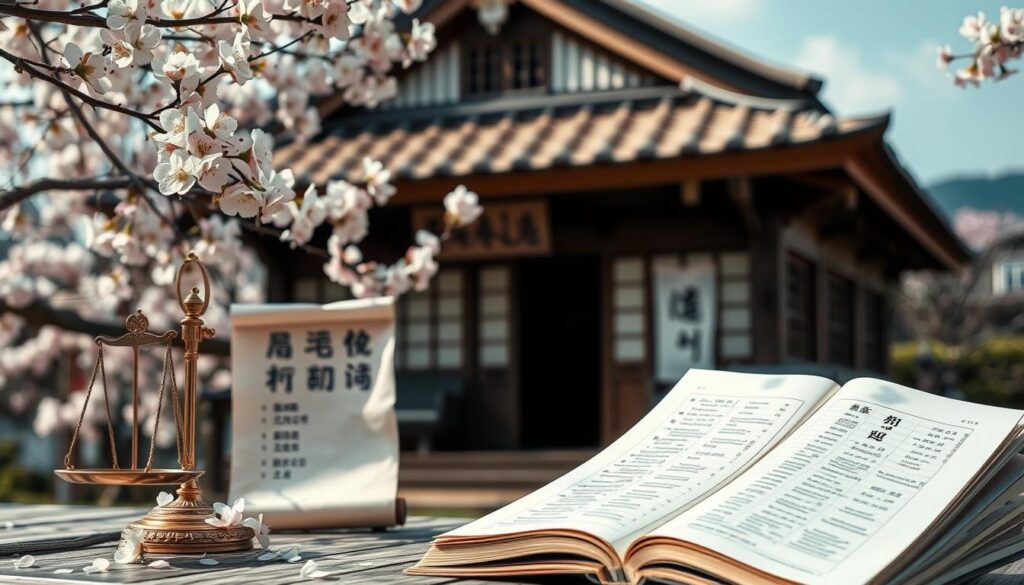
| Year | Event | Impact on Name Usage |
|---|---|---|
| 1884 | Trademark Ordinance (Shohy6 Jdrei) enacted | Protection of trademarks in Japan |
| 1959 | Trademark Act enacted | Protection of intellectual property rights in Japan |
| 1991 | Trademark Act amended | Expansion of trademark protection in Japan |
Using names in Japan is complex. Both laws and social norms matter. Knowing these rules helps use names correctly, for personal or business needs.
The Evolution of Imperial Name Usage in Japanese Society
Emperor Hirohito played a big role in Japan’s history, and his name is still well-known today. However, using imperial names in Japan comes with rules and cultural care. Discussing imperial names respectfully is essential, as they are tied to Japan’s history and traditions.
In recent years, fewer people have used the Gengo system, which is tied to the emperor’s reign. A survey found that only 34 percent mainly use the Gengo system. Another 34 percent use both systems, and 25 percent prefer the Western calendar. This change might be because of Western culture’s growing influence and a desire for something more modern.
There’s also the issue of banned names in Japan. While there are no laws against certain names, there are social norms. Names linked to the imperial family or famous historical figures might be considered taboo or insensitive.
The use of imperial names in Japan is complex and shaped by history, culture, and society. As Japan moves forward, imperial names will likely stay a key part of its cultural identity.
| Year | Gengo System Usage | Western Calendar Usage |
|---|---|---|
| 1975 | 82% | 18% |
| Recent Survey | 34% | 25% |
Cultural Respect vs. Legal Restrictions: Understanding the Distinction
In Japan, using names like Hirohito is a sensitive topic. There’s no law against the name Hirohito, but cultural norms say it’s best to avoid it. It’s a complex issue that needs a deep understanding of Japan’s history and culture.
The ban on Hirohito’s name isn’t a law but a social rule. Japan doesn’t officially censor Hirohito, but it’s a sign of respect. Using imperial names is guided by social etiquette, respecting the royal family and tradition.
Social Etiquette Considerations
In Japan, social rules are key in using imperial names. Names like Hirohito are seen as impolite and disrespectful because they’re linked to the royal family. So, people should avoid using these names in daily talk and in official papers.
Practical Applications
Knowing the difference between cultural respect and legal rules is crucial in Japan. No laws against names like Hirohito exist, but social norms are strong. People can move through Japanese culture with care and respect by grasping these subtleties.
Conclusion: Understanding the Truth About Imperial Names in Modern Japan
Our journey into the world of imperial names in Japan has shown us the truth. It’s all about the fine details of Japanese culture and history. The name “Hirohito” carries a complex past, but grasping the changing views and laws around these names today is key.
The Emperor system has profoundly influenced how names are chosen in Japan. It has shaped both old naming customs and today’s social norms. Recognizing the cultural importance and legal aspects helps us see how emperor Hirohito in Japan, banned names in Japan, and Japanese cultural sensitivity weave into the society.
Ultimately, the truth about imperial names in Japan is about tradition, law, and changing social views. As Japan moves forward with its rich culture, it is crucial to use these names with respect. It helps keep the country’s identity alive and promotes understanding between cultures.
FAQ
Is the name Hirohito banned in Japan?
What is the historical significance of Emperor Hirohito in Japan?
What are the regulations surrounding name usage in Japan?
How do the cultural sensitivities around imperial names in Japan impact the use of Hirohito?
What are the common misconceptions about the use of imperial names in Japan?
How has the legal framework for name usage in Japan evolved over time?
What is the distinction between cultural respect and legal restrictions regarding imperial names in Japan?
Source Links
- Ukraine removes Hirohito from video after Japan protests – https://apnews.com/article/russia-ukraine-europe-japan-tokyo-world-war-ii-5c4dc5cddcdc67fe4d45d348fc83b25a
- Hirohito Facts for Kids – https://kids.kiddle.co/Hirohito
- Hirohito – https://en.wikipedia.org/wiki/Hirohito
- Milestones in the History of U.S. Foreign Relations – https://history.state.gov/milestones/1945-1952/japan-reconstruction
- Emperor of Japan – https://en.wikipedia.org/wiki/Emperor_of_Japan
- Japanese name – https://en.wikipedia.org/wiki/Japanese_name
- Hirohito – https://military-history.fandom.com/wiki/Hirohito
- War Responsibility and Historical Memory: Hirohito’s Apparition – The Asia-Pacific Journal: Japan Focus – https://apjjf.org/herbert-p-bix/2741/article
- Hirohito Death Reopens World War II Wounds – https://www.latimes.com/archives/la-xpm-1989-02-18-mn-2222-story.html
- How Japan Took Control of Korea | HISTORY – https://www.history.com/news/japan-colonization-korea
- PDF – https://capstone.ndu.edu/Portals/83/20-1 INDOPACOM Trip Book Draft reduced part 2.pdf
- Empire of Japan – https://en.wikipedia.org/wiki/Empire_of_Japan
- PDF – https://www.archives.gov/files/iwg/japanese-war-crimes/introductory-essays.pdf
- Emperor Shōwa of Japan (Hirohito) – https://www.unofficialroyalty.com/emperor-showa-of-japan-hirohito/
- New Era Name ‘Reiwa’ Defines Japan As Emperor Akihito Prepares To Abdicate – https://www.npr.org/2019/04/01/708648297/new-era-name-reiwa-defines-japan-as-emperor-akihito-prepares-to-abdicate
- Imperial House of Japan – https://en.wikipedia.org/wiki/Imperial_House_of_Japan
- Yosha Bunko – http://yoshabunko.com/empires/Soshi_kaimei_myths.html
- Heil Hirohito: Was Imperial Japan a Fascist Totalitarian State? – https://utsynergyjournal.org/2017/01/23/heil-hirohito-was-imperial-japan-a-fascist-totalitarian-state/
- Political dissidence in the Empire of Japan – https://en.wikipedia.org/wiki/Political_dissidence_in_the_Empire_of_Japan
- From the Land of Gods: Modern Japanese Imperial Ideology – https://digitalcommons.bard.edu/cgi/viewcontent.cgi?article=1152&context=senproj_s2016
- The Legal Culpability of Emperor Hirohito in the Outbreak of the Second Sino-Japanese War – https://scholarworks.bgsu.edu/cgi/viewcontent.cgi?article=2092&context=honorsprojects
- Selected Aspects of Japanese Intellectual Property Law – https://scholarlycommons.pacific.edu/cgi/viewcontent.cgi?article=1476&context=globe
- Updating Software, Shaping History: New Imperial Era Name Looms Large in Japan – https://www.voanews.com/a/japan-emperor-era/4849905.html
- Fascism in Japan | History of Western Civilization II – https://courses.lumenlearning.com/suny-hccc-worldhistory2/chapter/fascism-in-japan/
- 10 Key Cultural Differences Between Japan and the USA – https://www.roadtrips.com/blog/cultural-differences-between-japan-and-the-usa/
- Asia for Educators | Columbia University – https://afe.easia.columbia.edu/special/japan_1750_meiji.htm
- War Crimes on Trial: The Nuremberg and Tokyo Trials | The National WWII Museum | New Orleans – https://www.nationalww2museum.org/war/articles/nuremberg-and-tokyo-war-crimes-trials
- The Emperor’s Speech: 67 Years Ago, Hirohito Transformed Japan Forever – https://www.theatlantic.com/international/archive/2012/08/the-emperors-speech-67-years-ago-hirohito-transformed-japan-forever/261166/
- Surrender of Japan – https://en.wikipedia.org/wiki/Surrender_of_Japan

